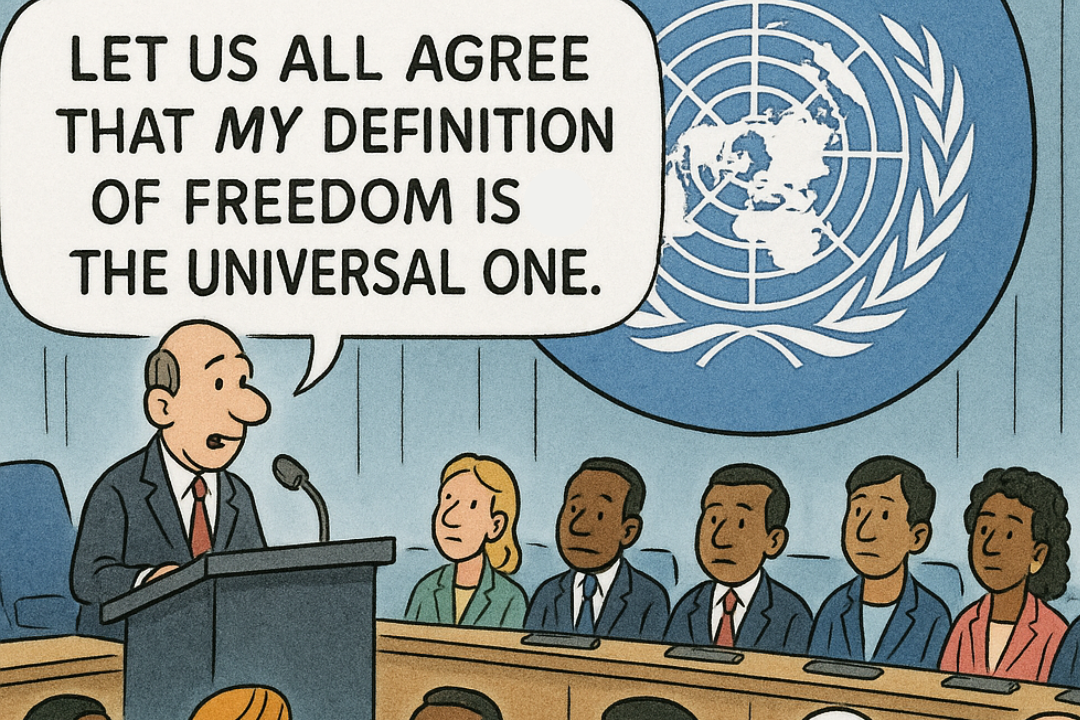Clashing Values at the UN
The Holy See Warns Against “Ideological Colonization” at the UN
The UN Committee on Social and Cultural Rights, commonly referred to as the Third Committee, is known to keep diplomats on their toes. From early October through December, the committee hosts public meetings twice a day, along with numerous closed-door negotiations. UN member states face the difficult task of agreeing on how to advance human rights and development issues while simultaneously clashing over the very definition of these rights.
This clash is perhaps best exemplified by the conflicting views on the issue of sexual and reproductive health (SRH) and gender ideology. Traditional countries oppose these concepts because they promote ideas and policies that contradict their values and moral frameworks. SRH, for instance, is voraciously used across the UN system to promote the right to kill the unborn. C-Fam has documented this trend in detail.
By contrast, some Western countries refer to opposition to these ideas as "anti-rights," "backlash," or "rolling back hard-won gains." This week, the EU, Australia, Mexico, Brazil, Canada, and Iceland voiced support for SRHR.
During the Committee’s recent discussions, the Holy See delegate voiced deep concern over such imposition, contending that:
“The interpretation of human rights has often been expanded beyond the scope of both law and consensus, with unintended ramifications. Consequently, the assertion of new concepts as rights can become an instrument of ideological colonization.”
“The roots of human rights are to be found in the God-given dignity that belongs to each human being. The State has the duty to promote and protect human rights, which are necessary conditions for human flourishing. This must be done within a framework that upholds both the freedoms of the individual and our responsibilities to each other,” the Holy See delegate continued.
Why does it matter?
These terms lack consensus. The UN should focus on promoting social policies based on shared principles and avoid imposing controversial terms.
Imposing contentious norms undermines countries’ national sovereignty and creates the false impression that abortion access is a human right and essential for “women’s health and empowerment."
Repetition of contested terms in UN documents, even if non-binding, creates the illusion of consensus and can lead to even stronger promotion of those concepts, including by UN programs working on the ground.
In international law, this principle is called customary international law. As Stefano Gennarini, Legal Expert at C-Fam, explains:
“Customary law is ancient, predating modern states, and it contains norms and customs accumulated through centuries of interactions between countries. The bar for such norms has always been set high because of the potential to bind states to norms without any formal negotiations or positive exercise of sovereign lawmaking prerogative on their part.”
C-Fam Friday Fax Stories
Trump May End Global DEI Spending “The Trump administration is preparing to radically expand what used to be called Mexico City policy that bans American money from going to groups that promote or perform abortions overseas. The new policy will the eliminate funding for “diversity, equity, and inclusion” (DEI) programs.” [C-Fam]
Euros Bring Abortion to Security Council “Liberal Western governments pledged to make abortion and feminism a central component of global security policy at the UN Security Council on Monday.” [C-Fam]
Good to know: UN Committees
The UN oversees over 40,000 resolutions covering a wide array of topics. To ensure procedural efficiency, this work is divided among the UN's specialized committees. Below is a list of committees and their topics of focus:



